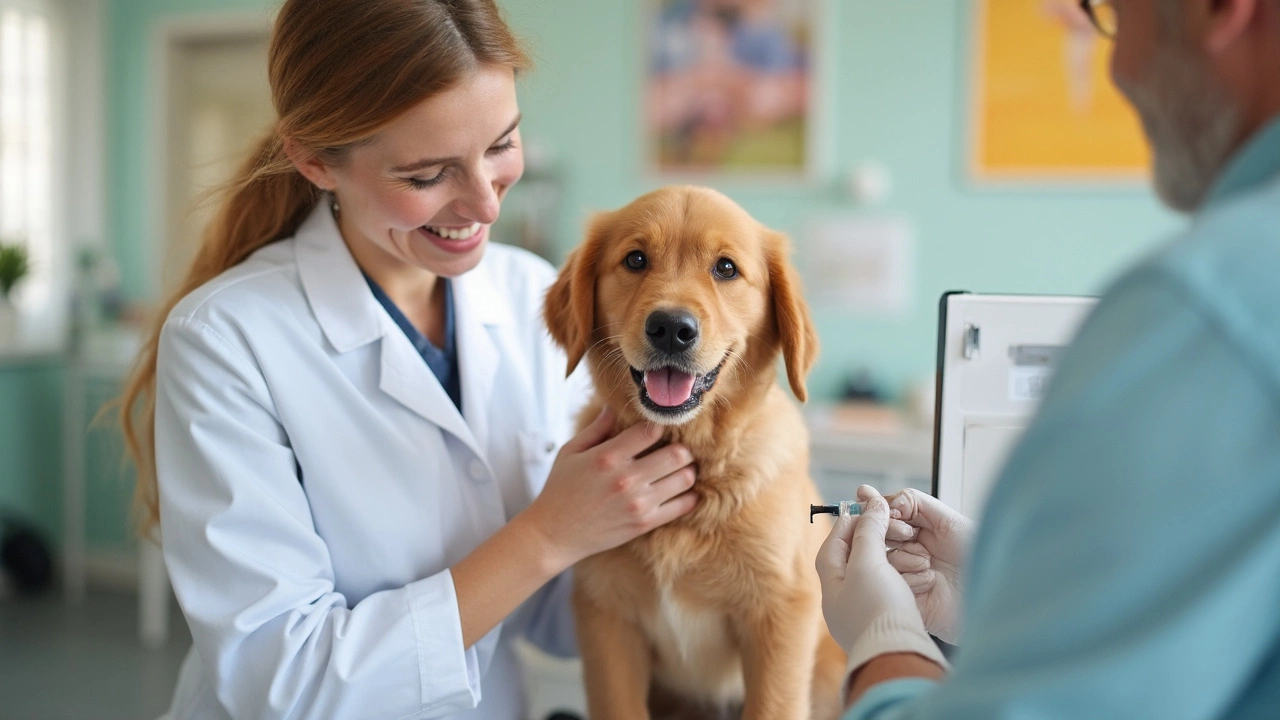Dog Vaccinations: What Every Owner Should Know
Vaccines are the simplest way to protect your dog from serious diseases. They work by teaching the immune system to recognise and fight germs before they cause trouble. If you’re new to pet care, the word "vaccination" can feel heavy, but the basics are easy to grasp and follow.
Core vaccines every dog needs
Veterinarians call some shots "core" because almost all dogs are at risk. The three big ones are:
- Distemper – a nasty virus that attacks the lungs, gut and nervous system.
- Parvovirus – a fast‑acting gut virus, especially dangerous for puppies.
- Canine hepatitis (Adenovirus‑2) – hits the liver and can cause fever, vomiting and jaundice.
Most vets bundle these into a single combo injection called DHPP. Puppies usually get the first dose at six to eight weeks old, then a booster every three to four weeks until they’re about sixteen weeks.
Non‑core vaccines and when to use them
Non‑core shots target diseases that depend on where you live or what activities you do with your dog. Popular options include:
- Leptospirosis – spreads through contaminated water; useful for hunting or countryside dogs.
- Lyme disease – common in grassy, tick‑infested areas.
- Rabies – required by law in the UK and many other countries; protects both pets and people.
- Bordetella (Kennel cough) – a good idea if your dog goes to daycare or boarding.
Talk to your vet about your lifestyle and local risks. They’ll suggest the right mix and timing.
After the puppy series, most core vaccines get a booster at one year, then every three years. Non‑core boosters vary; some need yearly shots, others every few years. Keep a record – a simple notebook or a digital app works well.
Side effects are rare. You might see a sore spot, a little fever, or mild tiredness for a day. If your dog seems unusually lethargic, vomits, or has a high temperature, call the clinic.
Vaccinating isn’t just about ticking a box; it’s a long‑term investment in your dog’s health and your peace of mind. A healthy pup means fewer vet visits, lower vet bills, and more happy walks.
Bottom line: start the core series early, follow the schedule, and add non‑core shots based on your dog’s life. Keep the vaccination card handy, set reminders on your phone, and don’t hesitate to ask your vet any question that pops up.
With the right vaccination plan, you’re giving your dog the best chance to live a long, playful life right by your side.
Posted By Bryndle Redding On 14 Apr 2025 Comments (0)
Understanding the 7 in 1 Vaccine for Dogs
The 7 in 1 vaccine is essential to protect dogs from various infections like distemper, parvovirus, and more. This vaccine is vital for their health, preventing serious diseases with a single jab. It also promotes a long, healthy life for your furry friend, making regular vet visits a breeze. Learn what makes this vaccination important, what it covers, and how it safeguards your pet.
READ MORE